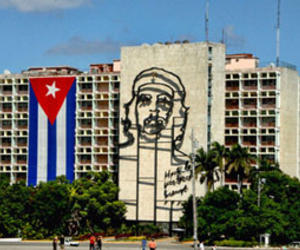Cuba to finally unveil Communist-approved reforms
- Submitted by: manso
- Politics and Government
- 05 / 07 / 2011

Sat May 7, 2011 12:49pm GMT.
-Government to sell publications starting on Monday
-Many reforms already underway
HAVANA May 7 (Reuters) - More than 300 economic reforms approved last month at Cuba's Communist Party congress will be unveiled on Monday when publications containing the changes go on sale, the country's state press said on Saturday.
Communist Party newspaper Granma said there will be a pamphlet listing the changes and a 48-page tabloid explaining them.
They will sell for, respectively, one and two Cuban pesos each, or the equivalent of about 12 cents U.S. for both.
The reforms represent President Raul Castro's attempt to strengthen Cuba's struggling Soviet-style economy by encouraging more private initiative and reducing the role and size of the state.
Many of the reforms are already underway, but others had to be refined and approved April 18 at the congress of Cuba's only legal political party and the final form has not been revealed.
Cubans are particularly anxious to see what the Communists decided about the fate of the universal monthly food ration that Castro says is too costly and whether they will be able to freely sell homes and cars.
The president, who succeeded his older brother Fidel Castro in 2008, has said the ration should only go to those who truly need it, but many Cubans fear losing a social benefit they have received for almost half a century.
To the chagrin of many Cubans, sales of homes and cars have been severely limited for years, but Raul Castro has promised a loosening of restrictions.
Major reforms already underway include the slashing of state payrolls, allowing more self employment, and the leasing of state lands to would-be farmers.
The changes are expected to give more autonomy to state-run companies and take steps to encourage more foreign investment, including in such things as luxury golf course resorts that previously have been anathema to Cuba's communist rulers.
Raul Castro has said the changes are needed to assure that Cuban communism put in place after the Caribbean island's 1959 revolution lives on when the current, aging rulers are gone. (Reporting by Jeff Franks; Editing by Eric Beech) Thomson Reuters 2011.
Source: http://af.reuters.com/article/energyOilNews/idAFN0724979820110507?sp=true
Comments